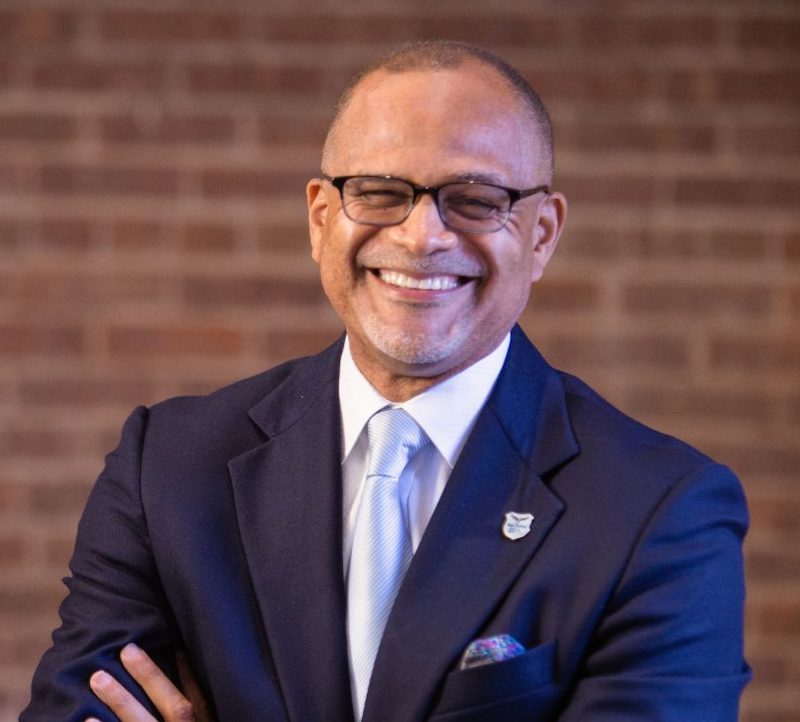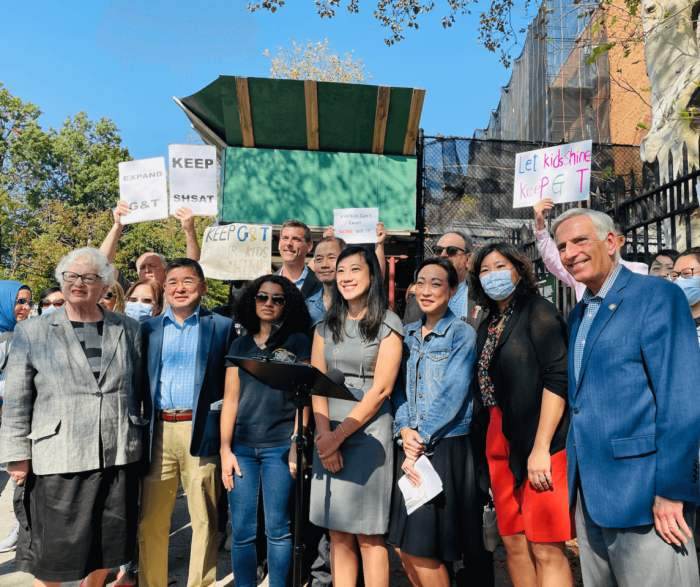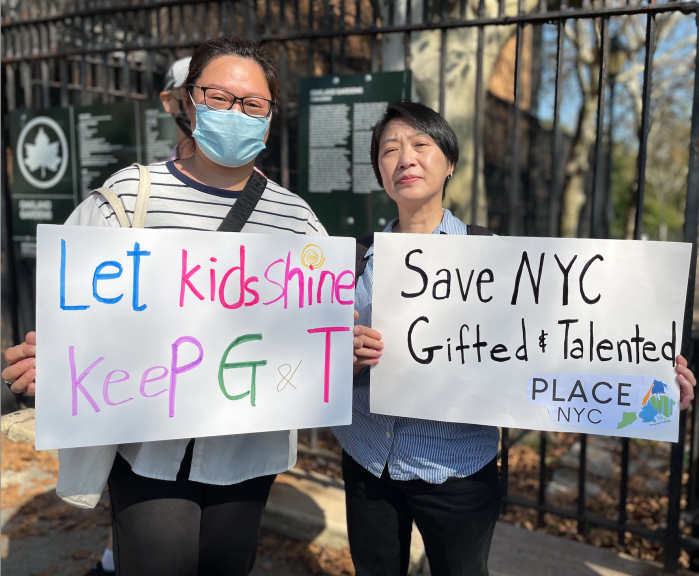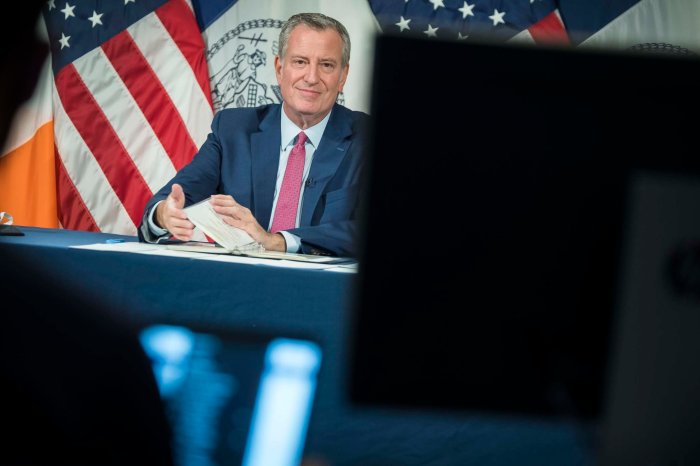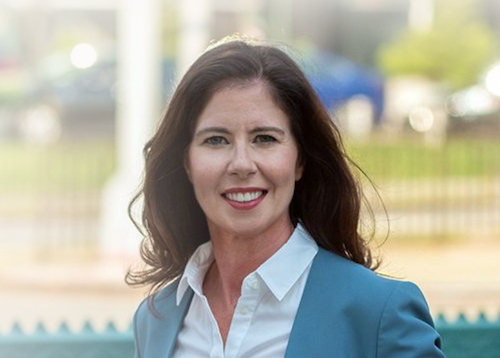Nearly 200 people tuned into the District 24 Community Education Council town hall with Chancellor David C. Banks Tuesday night, May 10, where he answered questions regarding the Gifted and Talented program (G&T), safety and diversity in schools.
Banks came prepared to answer questions posed by the council members about a whole host of issues facing District 24 schools. The chancellor kicked off the meeting saying that despite all the challenges in New York City public schools, there is great potential for what can be done.
After Mayor Eric Adams appointed Banks in December, the new chancellor promised to tackle the disproportionate proficiency levels between Black and white students and the flawed system of measuring progress in schools. These were some of the topics discussed during the CEC meeting Tuesday night.
Council member Sandy Jimenez asked how the chancellor would ensure that all students have a fair chance at specialized high school admission.
“These schools are very un-diverse,” Jimenez said. “We’re seeing less and less Black and Latino students attending and getting in. I was one of four Latinos and it was very lonely and unfair to great kids in my neighborhood. My kids deserve the same opportunities as everyone else.”
Banks said that entrance comes down to scores but is constantly looking for ways to provide accessibility and better programming. Instead of altering Stuyvesant High School or Brooklyn Technical High School, Banks said that he is looking into creating entirely different programs that would accommodate other students left out by the admissions test.
“The mayor and I said we have plans to open more specialized schools and expand them around the city — and they may have a different set of admissions criteria,” Banks said. “People said, ‘We don’t have enough diversity in G&T and if you put one in every district you’re going to have more diversity.’ And that’s what we did.”
The Department of Education (DOE) also expanded the number of seats available for the DREAM Program, a middle school summer program that helps prepare students for the specialized high school test.
G&T is designed to foster the needs of “exceptional” students, identified through the G&T test and New York state test scores. Banks announced in April that the city will add 1,100 slots across two grades. The program has received a lot of criticism for contributing to segregation in city schools and widening the proficiency gap.
The council expressed its excitement over the prospect of adding three new Gifted and Talented programs that would “reach a previously underserved population.” However, the council inquired how the city will ensure all those teachers would be properly accredited and the needs of students for accelerated learning will be met.
“There hasn’t been enough standardization and training — we basically have just taken a bunch of smart kids and put them in a room and called it Gifted & Talented,” Banks said. “There’s a lot of work to ensure a greater degree of quality.”
Banks handed the question over the Deputy Chancellor Carolyne Quintana, who said the DOE is making sure teachers are receiving training in project and problem-based learning, individualized learning and relevant, real-world lessons.
“This is a multistep process that is going to include training and specific criteria so they can meet the needs of our advanced learners,” Quintana said.
A council member also asked whether or not DOE will add safety officers at schools where they are in need.
“Many of our schools require untrained staff members to sit at our front desks and most of our schools have fewer than required numbers of safety agents,” said CEC24 Vice President Henry Choi. “Some schools are lucky to have one security guard for 1,400 students.”
Banks said that he values school safety officers tremendously but recognized the difficulty of increasing officers throughout the city. Mark Rampersant, the security director at DOE took over the question, saying that the DOE has no bearing on increasing the number of school safety officers.
“Under this chancellor and the mayor’s leadership, we currently have our second class of school safety agents in the academy,” Rampersant said. “We have a class of 250 — we are focused on those elementary schools that have a single agent in the building. We work with our partners at the NYPD, holding their feet to the fire to continue to provide safety and security to our young people.”
The council mentioned that Rampersant will be invited to future CEC 24 meetings, where members will bring forward specific issues and list schools that need more safety agents.

